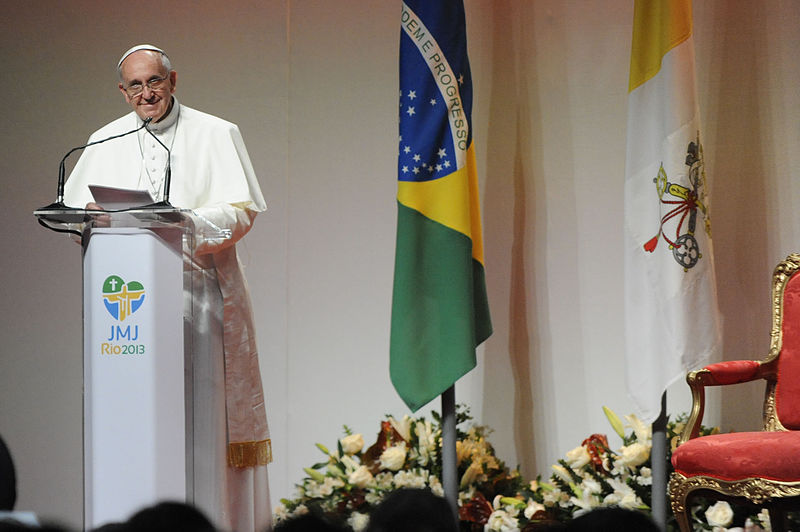
Seminarians, Popes and Evolution: A View from Brazil
By Marcio Antonio Campos

Are seminarians who know what popes have said on evolution more likely to make peace with Darwin?
When Pope Francis said in 2014 that God was not “a magician, complete with an all powerful magic wand”, parts of the press went mad, as if the Catholic Church had finally made peace with the Big Bang and the theory of evolution.
Journalists could have easily addressed this lack of historical perspective by reading about the priest-astronomer Georges Lemaître or Pope Pius XII’s Humani generis encyclical. However, when it comes to Darwinian evolution if we cannot expect much from my fellow journalists, what about seminarians, the priests of the future? This is the question I asked myself in 2019, which led me to carry out a second online survey with seminarians in Brazil (the first one was in 2011). The results of my most recent survey have just been published in the September 2021 issue of Zygon.
The questionnaire asked seminarians for their views on the relationship between science and religion (fortunately, the ones who adhered to the conflict thesis were rare). With a main focus on four issues:
- how well seminarians knew the theory of evolution;
- whether seminarians were aware of speeches and writings by popes on evolution;
- whether they thought evolution was true;
- and whether they believed evolution to be compatible or opposed to Catholic doctrine.
This last point is a necessary distinction since one may not accept the evolutionary explanation for the variety of life on Earth, but at the same time, think evolution does not deny any Catholic dogma, or vice-versa. Personally, I consider evolution the best explanation, but I don’t think a creationist or an Intelligent Design (ID) supporter necessarily clashes with the Catholic faith. In my opinion, no one is going to hell for supporting a certain hypothesis on origins.
My survey data shows that seminarians who displayed a higher knowledge of what Darwinian evolution is and how it works are more likely to adhere to evolutionary views – either in a “God-guided evolution” form (not to be mistaken with ID) or in a “non-guided evolution” form – as well as to support compatibility between evolution and the Catholic faith. Such correlation between knowledge and acceptance of evolution has been widely studied, with surveys and polls among both general populations and specific groups, with mixed results: sometimes there’s a correlation, sometimes not.
My biggest curiosity, however, was a different one: I wanted to know the opinion of seminarians who knew papal statements on evolution, from Humani generis to Pope Francis’s 2014 speech, including the famous 1996 address by John Paul II to the Pontifical Academy of Sciences and lesser-known audiences by Benedict XVI. First, I had to know whether seminarians were aware of such statements. Some responses were quite “generic”, giving answers like “John Paul II spoke about it”, but without providing any references. Some gave wrong or inaccurate answers, such as mentioning John Paul II’s Fides et ratio. However, some seminarians had the exact reference or were able to quote the specific words spoken by a pope.
In this study, there was a correlation between evolution acceptance and awareness of papal statements. While 48% of all seminarians adhered to evolutionary views (either “God-guided” or “non-guided”), acceptance was higher in all groups that displayed at least some degree of awareness of papal statements. There was a single (and curious) exception to this, however, one which goes unexplained so far: those who quoted accurately John Paul II’s 1996 address.
Likewise, while 55.9% of all seminarians considered evolution “fully compatible with Catholic teaching” or “more compatible than opposed to Catholic doctrine”, the compatibility view was higher among seminarians who knew papal statements; favorability reached 86.4% among seminarians who provided exact or wrong/inaccurate quotes by John Paul II. It means that seminarians who do know papal statements on evolution are more likely to accept it as true and compatible with Catholic teaching, than seminarians who are unaware of such statements.
However, as Robert Matthews shows in his famous paper “Storks Deliver Babies (p= 0.008)”, correlation does not imply causality. With only my data, I cannot claim that the knowledge of papal statements influenced a seminarian’s view on the subject. Can it be true for some of them? Of course. Nevertheless, it may happen, as well, that a seminarian already believed that evolution is true and compatible with the Catholic faith before discovering what the popes said or wrote about it. There are multiple ways to build one’s view on the issue, and knowing them would demand detailed, face-to-face interviews, instead of an online questionnaire. This is my suggestion for future research.
If further research establishes that the popes’ statements on evolution do influence how Catholics (either clergy or laypeople) view the subject, evolution supporters will have a broad avenue to explore, because most of the surveyed seminarians weren’t able to mention any papal statement on evolution. Showing Catholics that many popes were clear about the lack of opposition between Darwinian evolution and Catholic faith could decrease resistance and leave these faithful at ease to accept the overwhelming evidence supporting evolution. A final note: I asked seminarians who claimed evolution was “more opposed than compatible” or “totally opposed” to Catholic teaching to detail the main conflict points they saw between Darwinian evolution and Catholic doctrine. To no one’s surprise, most of their answers dealt with the origins of humanity and the monogenism/polygenism controversy. Indeed, there are no easy answers for these issues; they require dialogue between data from the fields of biology and genetics and sound theological anthropology. Many scholars have been working hard to untie this knot, but, once again, it was not possible to know whether seminarians are aware of such attempts to reconcile evolution and Catholic faith, or whether they think such attempts are poor or wrong.

Marcio Antonio Campos is an editor and science and religion blogger at Gazeta do Povo, the leading newspaper in Southern Brazil. For more about his work and writing please see his Researcher Profile.
